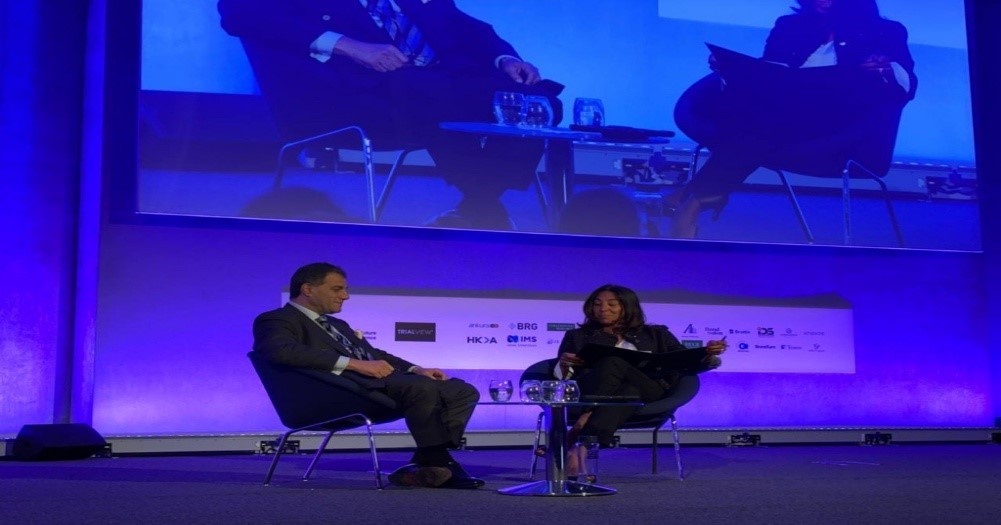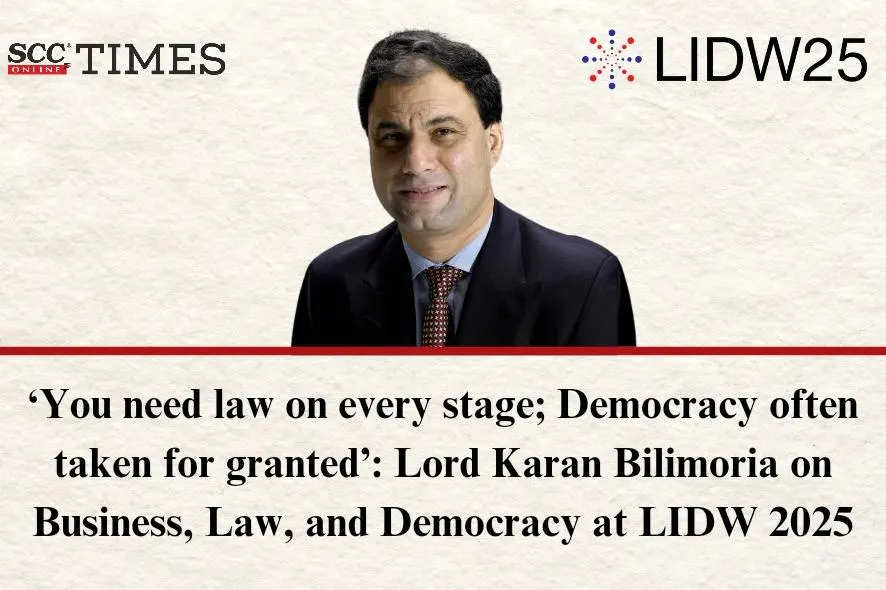At the LIDW 2025 Main Conference, a session titled “View from Business” featured Lord Karan Bilimoria, Chairman of the International Chamber of Commerce (ICC) UK, in a thought-provoking conversation with Poonam Melwani KC, Head of Chambers at Quadrant Chambers.

In the chat at LIDW 2025 Main Conference that was both candid and deeply inspiring, Lord Karan Bilimoria, Founder and Chairman of Cobra Beer and Chairman ICC UK, captivated the audience with his entrepreneurial journey, legal learnings, and reflections on leadership. Recalling his formative years at Cambridge, Lord Bilimoria shared how the idea of Cobra Beer evolved during his time as a law student: “It wasn’t one of these eureka moments where I jumped out of the bath naked and ran down the streets of Cambridge. It was an idea that evolved.” Forgoing the conventional path of joining a law firm or investment bank, he took a leap into entrepreneurship right after university: “Instead of going into a job in accountancy or investment banking or becoming a lawyer or an accountant, I set up Cobra Beer. And that was my business journey.”
Emphasising how his legal education shaped his entrepreneurial mindset, he recalled advice from the Dalai Lama. This idea of ‘wide thinking’, he said, became a lifelong mantra, helping him navigate obstacles with creativity and composure. He stressed how legal knowledge is indispensable in business, particularly in protecting intellectual property and navigating contracts: “Contracts are really cool,” he quipped, as he recounted how Cobra Beer’s first five-year contract with an Indian brewery laid the foundation for what would later become a UK manufacturing partnership with Charles Wells Brewery.
On the interplay of business and law, he remarked that, “in building the business, there’s no running away from it. You need the law on every stage” — from registering trademarks and drafting contracts to resolving international disputes. He explained how Cobra Beer’s success was as much a legal journey as a commercial one, involving cross-border agreements, intellectual property protection, and strategic navigation of regulatory systems. His sole litigation experience—taking a global bank to court over unfair invoice discounting—further illustrated the importance of legal resilience and faith in judicial systems.
In a striking anecdote, he recalled taking on a major global bank in court over unfair invoice discounting fees—his only litigation experience in decades of business. “My accounting professor once said: ‘This is the case of law and the bank. Before we go into the details of the case, remember—the bank always wins.’ So in this case, the bank didn’t win. I won the case,” he said with pride. “It wasn’t a pleasant experience, but you have to have faith in this country and its judicial system.”
Reflecting on the UK’s legal legacy, he affirmed: “If you think about it, which is the country that is most respected when it comes to the law? And it is this country, by far.” He also praised the resilience and indispensability of the legal profession with his signature wit: “Whether they win the case for one or the other side, [lawyers are] going to get their fees. So, it’s good to be in the law.”
Lord Bilimoria also spoke passionately about the role of democracy, particularly in the face of global instability. He underscored how fortunate countries are to have functioning democracies and the Rule of Law. “We often take the rule of law, democracy and democratic stability for granted”, he said, reminding the audience that legal and democratic institutions are fundamental to peace, progress, and business confidence.
The session served as a masterclass in how legal training can underpin entrepreneurial success. Lord Bilimoria’s six principles of business, coupled with his personal anecdotes and authenticity, left the audience both inspired and empowered. These 10 Ps he believes are essential to building a successful business: (1) Product and exit product (2) Price (3) Promotion (4) Place (5) People (6) Financial Prudence (7) Passion (8) Partnership (9) Profit (10) Principles. Lord Bilimoria’s six principles of business, coupled with his personal anecdotes and authenticity, left the audience both inspired and empowered.


